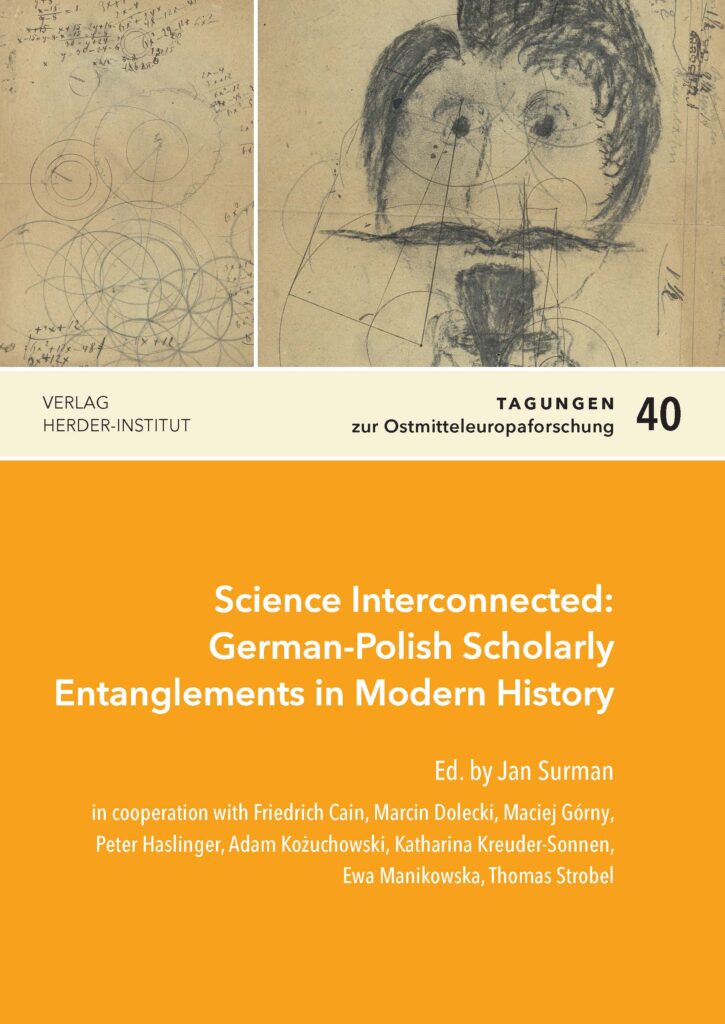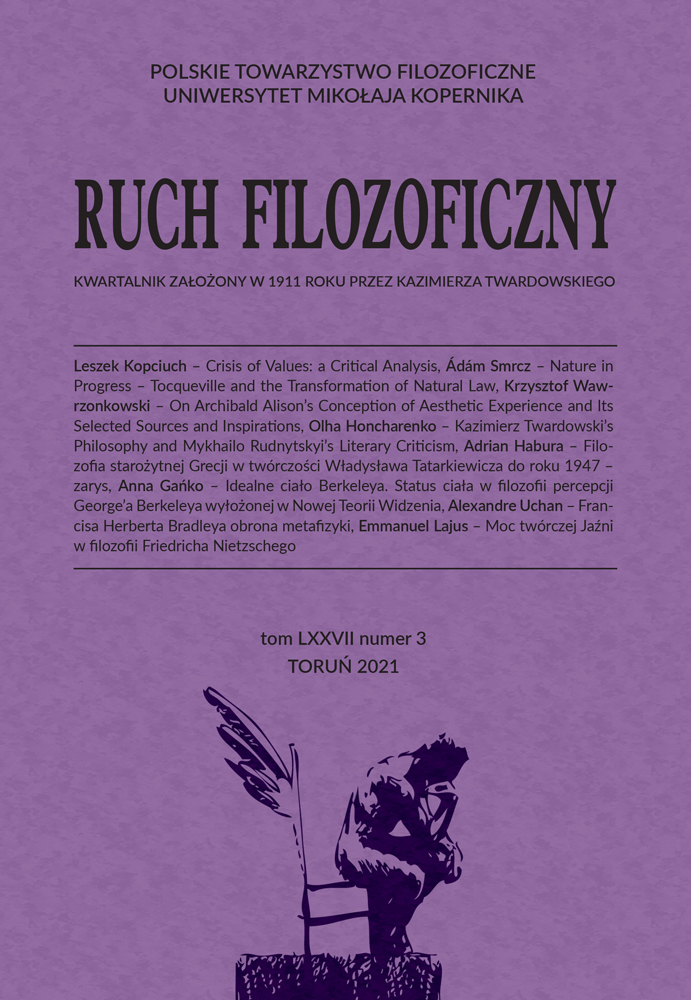Home » Posts tagged 'H. Cohen'
Tag Archives: H. Cohen
Plato Between Poland and Marburg

A paper by Tomasz Mróz, Studies on Plato at the Turn of the 20th Century: A Case of Polish-German Cooperation, was published in a collective volume titled Science Interconnected: German-Polish Scholarly Entanglements in Modern History (ed. Jan Surman et al., “Tagungen zur Ostmitteleuropaforschung” 40, Verlag Herder-Institut, Marburg 2022).
A fine and instructive episode of German-Polish cooperation, announced in the title of the paper, involved three philosophers and historians of philosophy: a German, Paul Natorp (1854-1924), and two Poles, Wincenty Lutosławski (1863-1954) and Władysław Tatarkiewicz (1886-1980).
For decades Marburg philosophers in general, and P. Natorp in particular, had a vivid interest in Plato. Natorp’s book, Platos Ideenlehre. Eine Einführung in den Idealismus (1903), is an important point in the history of interpretations of Plato and is still referred to by contemporary Plato scholars. At the time of publishing of Natorp’s book, W. Lutosławski already had an established reputation of Plato scholar, for his book, Origin and Growth of Plato’s Logic with an Account of Plato’s Style and of the Chronology of his Writings (1897), had incited international debate on the chronological order of Plato’s dialogues anew. Both scholars exchanged letters and Natorp allowed Lutosławski to read chapters of his soon-to-be-published book, the conclusions of which were to some extent concurrent with Lutosławski’s interpretation of the theory of ideas. Both scholars rejected traditional, rooted in Aristotle, understanding of the ideas’ existence.
W. Tatarkiewicz was a generation younger than the two scholars. As a young student of philosophy he arrived in Marburg to write his dissertation, and though its topic was Aristotle, the Marburg Plato was an important part of his curriculum. His dissertation was supervised by Hermann Cohen (1842-1918) and Natorp. One of the first Polish papers of Tatarkiewicz, published after his Ph.D, was devoted to his Marburg teachers’ interpretation of Plato to which he adhered (1911). Two decades later, when his History of Philosophy appeared in print (1931), he still considered Natorp’s book on Plato to be one of the essential works for Plato scholars.
What should be remarked, relations between German and Polish Plato researchers were in this case devoid of national prejudices and it was also a rare example of an influence exerted by Polish philosopher on a German peer scholar, for it was thanks to Lutosławski that Natorp pursued research on the chronology of Plato’s dialogues and publihed a series of papers on this topic. Tatarkiewicz, in turn, as he himself declared, owed his lasting research interest in the history of philosophy to his Marburg teachers.
To receive a pdf copy of this paper, do not hesitate to email the author: T.Mroz@ifil.uz.zgora.pl
Ancient Philosophy in Academic Curriculum of Władysław Tatarkiewicz

A paper by Adrian Habura, discussing Władysław Tatarkiewicz’s (1886-1980) works on ancient philosophy, which had been published by him by 1947, was published in “Ruch Filozoficzny” (vol. 77, 2021, iss. 3), the second oldest Polish philosophical journal. The paper is structured chronologically and presents results of careful sifting of all Tatarkiewicz’s works published before 1947.
Władysław Tatarkiewicz was a historian of philosophy and a philosopher, who studied ancient Greek philosophy throughout his entire research career. It is not surprising to say that he considered ancient philosophy to be the foundation of European philosophy. Furthermore, his original philosophical works indicate that the investigations of ancient Greeks were his major inspiration. The aim of this article is to provide an outline of those of Tatarkiewicz’s works in which Greek philosophy was explored by him as a topic of his historical research or used as the source of inspiration for his original philosophical reflection. The analysis of Tatarkiewicz’s works that were focused on Greek philosophy is related to Tatarkiewicz’s methodology. All this taken together allows to give a preliminary answer to the question of the significance of ancient Greek philosophy for his philosophical development and for philosophy in Poland in general.
Habura traces Tatarkiewicz’s academic biography back to his Ph.D. thesis from Marburg, which was devoted to Aristotle – and later reviewed by D. Ross – and Aristotelian inspirations in his subsequent paper on Weltansichten. One of the results of Tatarkiewicz’s stay in Marburg was his research on Plato, largely inspired by his Marburg teachers, Paul Natorp and Hermann Cohen. Later works by Tatarkiewicz in ethics, including his habilitation thesis, reveal his continuous direct and indirect references to Greek philosophers. In 1931 two volumes of his History of Philosophy saw the light of day, his opus magnum in historiography of philosophy, including, obviously, chapters on the Greeks, and in 1947 his treatise On Happiness appeared, with numerous references to ancient ethical systems.
This paper offers not only a mere report of Tatarkiewicz’s references to the ancients, but moreover, Habura succeeded in indicating connection between Tatarkiewicz’s historical interest in ancient philosophy and his own original research in philosophy and ethics.
Full paper in Polish is available on the journal’s website here.
Recent commentaries